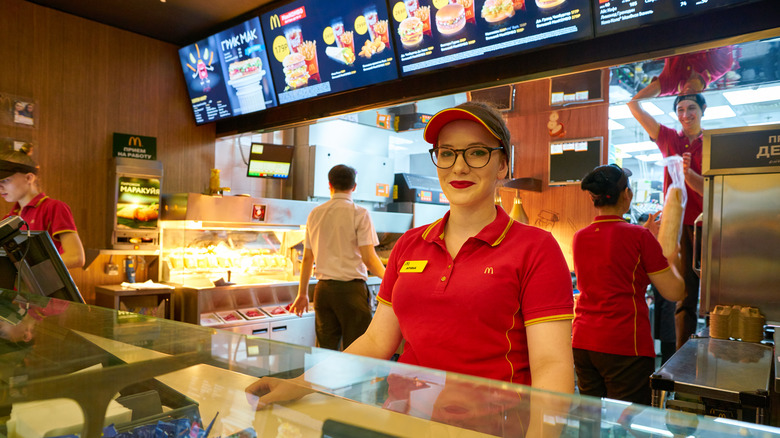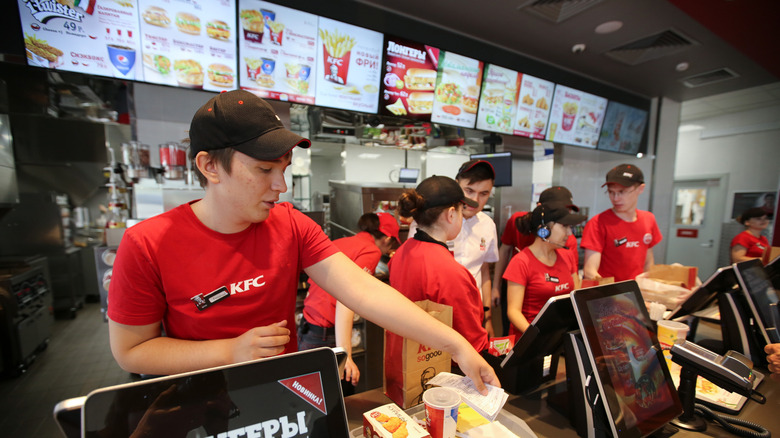How The War In Ukraine Could Impact American Fast Food Restaurants
The world watches as Russia invades Ukraine, in part waiting to assess the initial economic fallout for countries and businesses worldwide. Sanctions imposed on Russia will likely affect the global economy on many fronts, from supply chain disruptions to increased fuel and transport costs. American fast food restaurants are bracing for financial impact and creating contingency plans should the Russia-Ukraine crisis become more unstable.
Insider details the concerns being voiced by the parent companies of fast food powerhouses like KFC and Burger King regarding the impact of escalating events in Eastern Europe. Many U.S.-based fast food chains, including McDonald's, have expanded into Russia over the past two decades with thousands of locations between them. According to Statista, McDonald's alone has over 850 restaurants in Russia as of February 2022. KFC has the most considerable presence with over 1,000 locations in the country, while Burger King operates around 550 restaurants in Russia.
Yum! Brands, which owns multiple fast food chains including KFC, released a statement in its annual report regarding its economic concerns with the international marketplace. The report cites sanctions, "inflationary pressures," fuel prices, and other economic challenges as having a possible impact on sales and ability to attract new franchise owners. Restaurant Brands International, which owns Burger King, acknowledged the negative economic impact that more severe sanctions might have on its Russian restaurant locations more directly in its report. "The conflict between Russia and Ukraine could adversely impact economic conditions and demand for dining out as well as result in heightened economic sanctions from the U.S., Canada, and other countries in a manner that may adversely affect us and our franchisee's restaurants located in Russia and Eastern Europe," the report reads.
Fast food restaurants prepare for challenging scenarios in Russia
As the United States and Europe impose increasingly severe economic sanctions on Russia, American fast food chains in the region steady themselves to face challenges that could adversely affect their bottom line. This isn't the first time franchises operating in Russia have felt the negative effects of social and political unrest.
Newsweek recounts the fallout resulting from U.S.-imposed sanctions after the 2014 Russian invasion of Crimea, after which dozens of McDonald's restaurants closed in the Eastern European country. The outlet also remembers 2016, when 44 Moscow McDonald's locations were hit with health code violations that many felt were unfounded after Russia was accused of interfering with the U.S. election.
Increasing fuel prices and transportation costs, plus new trade restrictions could all impact stock levels and adversely affect sales in Russia, prompting franchise locations to stockpile supplies. (It's worth noting that McDonald's restaurants in Russia locally source 98% of their supplies, so it might not feel the full weight of trade restrictions compared to other chains.) News Net Daily explains that sanctions imposed on Russian financial institutions might make it difficult to move money in and out of the country as well.

